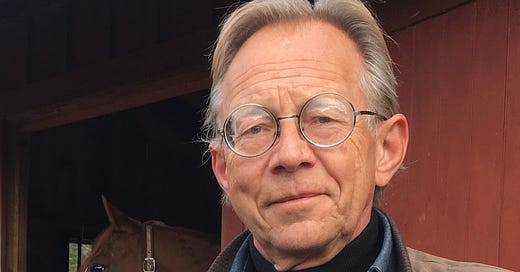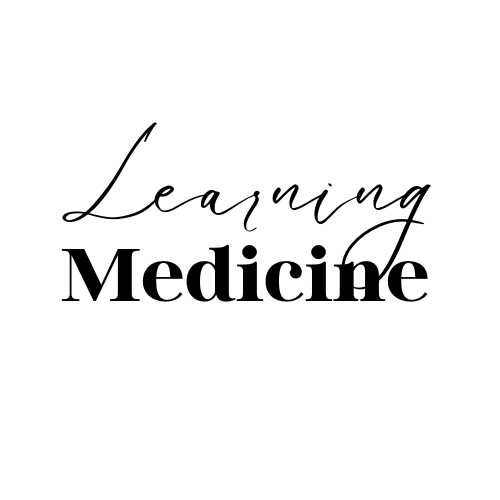See Dr Lilian White’s post at
I was trained in allopathic medicine, which is sometimes referred as Western medicine. The Greek word implies treatment with the opposite of what causes our patient’s suffering. It was coined by Samuel Hahnemann, the father of homeopathy. Homeopathy means treating like with like, giving very small doses of substances that in higher doses could cause the very symptoms our patient has.
There was intense competition between the two practice philosophies. At one point in the United States, the homeopaths seemed to have the upper hand. They even formed their American Institute of Homeopathy in 1844, three years before we got our American Medical Association off the ground.
Eventually, allopathic medicine became the leading practice in this country and homeopathy became sidelined. But here and there, homeopathic principles made their way into Western medicine. Robert Koch developed tuberculin in 1820, an extract of the TB bacillus, and tried it in hopes of curing TB, starting with very small doses. That ultimately didn’t work well enough, but tuberculin became a way to test for exposure to TB. Vaccines introduce miniscule doses of parts of viruses or weakened forms of viruses to prevent disease. Allergy shots are made with “homeopathic” doses of the very substances people are allergic to. And even in behavioral health and psychiatry, we widely practice desensitization for phobias. There, too, we use miniscule pictures of what a patient may be afraid of, starting with a picture of a stick figure of a very small dog far away, for example. So, none of us allopathically trained doctors can say that it is always wrong to treat, or at least prevent, disease or suffering according to the principle of treating like with like.
Another practice of medicine originated with Andrew Taylor Still in 1874. He called it osteopathic medicine. Trained as an MD, he looked for alternative ways to prevent and treat disease. He took Hippocrates view that all parts of the body are interconnected and viewed the musculoskeletal system as fundamental in that regard. Osteopathic means suffering of the bones. Physical manipulation of the musculoskeletal system is paired with an emphasis on prevention and wellness, which are an ever-increasing part of what allopathic physicians also practice. And as far as connection between body parts and their influence on each other, the P6 acupressure point near the wrist and its relation to nausea and vomiting is fairly well accepted, for example.
And, speaking of interconnectedness between body parts, we now have concepts like psychoneuroimmunology, PNI, “a discipline that has evolved in the last 40 years to study the relationship between immunity, the endocrine system, and the central and peripheral nervous systems”.
This brings me to the term “placebo effect”, which we use as a derogatory way of explaining why patients can appear to get better from therapies we don’t believe in. For example, homeopathy is probably only that according to many allopaths.
But, what if our bodies have a much greater ability to heal than we ever imagined, now that we even know some of the mechanisms behind that? What if a harmless homeopathic dose of a substance with a suggestive name can trigger a positive chain reaction of psychoneuroimmunological events in our bodies? Compare that with the nocebo effect of having to list all the possible side effects of the medicines that we allopaths prescribe – and many of them have very real risks. Ortega and others wrote in 2022:
The placebo effect can be defined as the improvement of symptoms in a patient after the administration of an innocuous substance in a context that induces expectations regarding its effects. During recent years, it has been discovered that the placebo response not only has neurobiological functions on analgesia, but that it is also capable of generating effects on the immune and endocrine systems. The possible integration of changes in different systems of the organism could favor the well-being of the individuals and go hand in hand with conventional treatment for multiple diseases. In this sense, classic conditioning and setting expectations stand out as psychological mechanisms implicated in the placebo effect. Recent advances in neuroimaging studies suggest a relationship between the placebo response and the opioid, cannabinoid, and monoaminergic systems. Likewise, a possible immune response conditioned by the placebo effect has been reported. There is evidence of immune suppression conditioned through the insular cortex and the amygdala, with noradrenalin as the responsible neurotransmitter.
So, I think we could borrow from other schools of thought in order to better help our patients. And I absolutely think the allopathic healthcare “system” has made it harder and harder for us to promote healing because of the bureaucratic and regulatory requirements it imposes on us. They make it harder for us to live up to one of my personal favorite concepts – when the doctor is the treatment.





Thank you for your history of the various kinds of medicine. It helps to have an understanding of how various attitudes in medicine develop.
It has always bothered me that allopaths tend to be so critical of anything that doesn't fit their playbook. Especially when someone starts shouting "quack." Now, with the web, it's easy to find alternative approaches to health problems. Yes, some of the suggestions may be less than helpful, or may mean buying a bottle of pills online which may or may not work for you. But the element of choice is important in healthcare.
The term alternative medicine makes a slight nod in the direction of other healing modalities, but as far as I know, that branch of medicine doesn't seem to be growing very fast.
And finally, I have always been annoyed by the tendency to term some results the placebo effect. Personally, I don't care if I feel better because of the placebo effect or my imagination. The important thing is I feel better.
I really wish the allopaths could get away from their checklist mentality, running through the checklist of possible causes of a problem and when they check off everything that isn't the problem, simply declare the patient has nothing wrong with them. Their job is to find the cause of the patient's problem even if the cause doesn't show up on a standard of care checklist.
Family practice physicians with good patient-physician relationships go beyond checklists and keep looking until they find out what is causing a patient's problem. One reason why they are so successful at this is they know the patient well, and probably knew the patient's parents and grandparents. This is knowledge that escapes AI because it never sees the light of an electronic medical record system.
Physician expertise is based on the ability to remember one incident 30 years ago. The EMR and AI have no access to this physician expertise and they are all the poorer for it. And so is our healthcare.
I'm a firm believer in science based medicine but I have had good outcomes being treated by osteopathic physicians with a combination of typical Western medicine and osteopathic manipulative medicine.